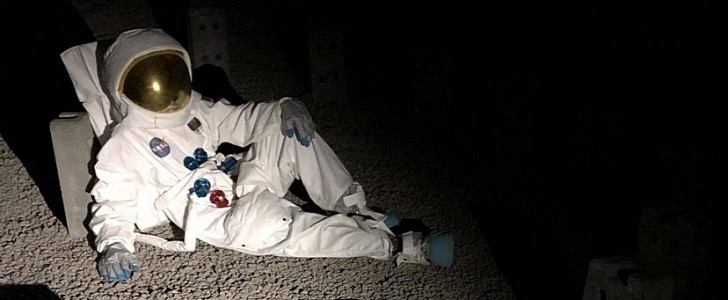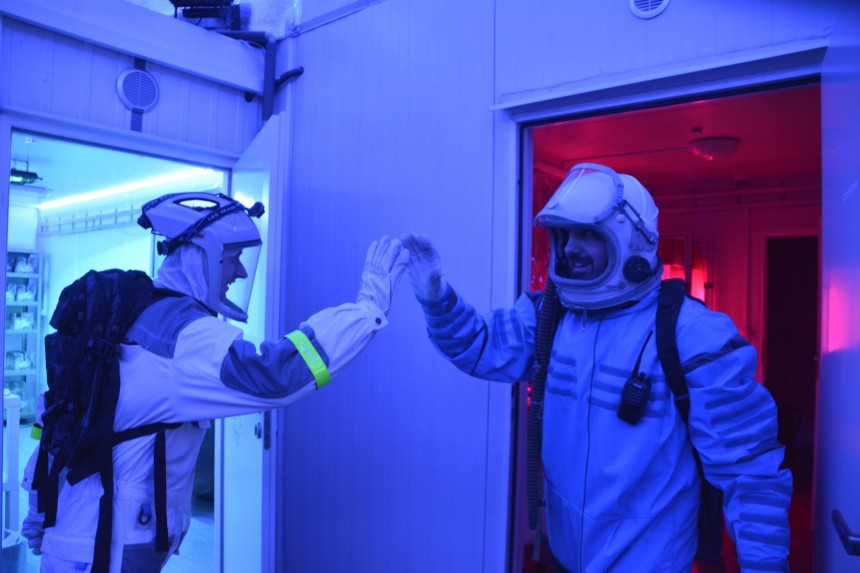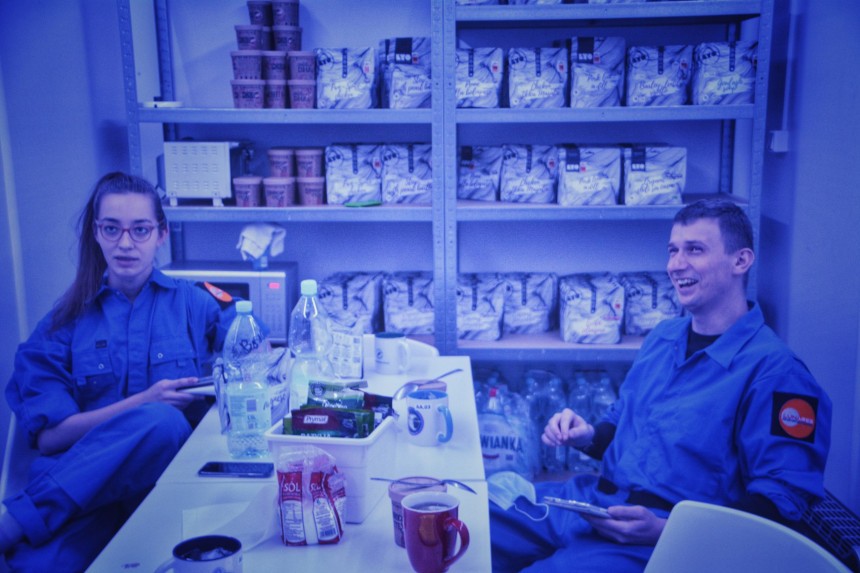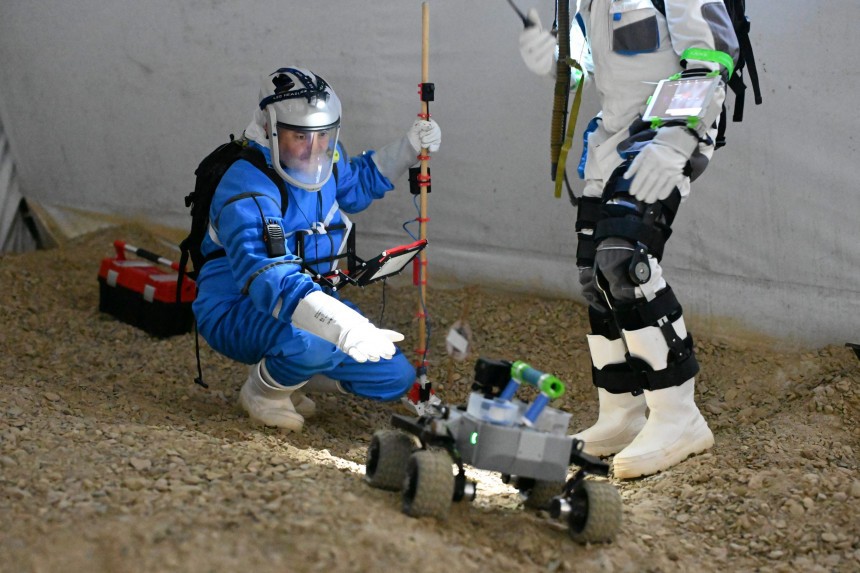Elon Musk is optimistic that SpaceX will send the first manned rocket to Mars by 2024, and that space tourism and the ultimate colonization of the Red planet will follow suit. Until space tourism becomes a thing, you can still get a taste of life in space, right here on Earth.
April is autoevolution’s Space Month and no discussion about any type of space travel would be worth having if it did not mention the LunAres Research Station. Maybe the name doesn’t ring a bell (which, as a side note, is a pity we’re trying to correct), but the work done at LunAres is admirable. Here is a research center that puts together a variety of missions, either on the Moon or Mars, with the goal of conducting a variety of studies. And you never leave Earth.
Located on the grounds of a post-military airport in Poland, near the city of Pila, the Research Center is a specialized facility that simulates all the conditions of space travel and of a space research station, minus the zero gravity. “Missions” are conducted with open-call crews and are organized according to specific goals set beforehand.
Created in 2017 by two companies, Space Garden and Space Is More, LunAres Research Center has been open since the summer of 2020. It’s already completed several missions, with eight more scheduled for 2021.
As of the time of press, LunAres is conducting the Pandemic Isolation Campaign, with the next “mission” scheduled to kick off this month. Its goal is to help collect data that will then be used in a variety of studies on the psychological and health impact of isolation and long-term extra-terrestrial human presence, the absence of sunlight, and even the health impact of freeze-dried foods. Medical and sustainability studies are also being conducted; for instance, the six-person crew will conduct aeroponic and hydroponic studies, and gray water studies.
Every condition of living on a space station is replicated, from fully-suited two-hour Moon walks, working with the lunar rover Leo, rigorous training, exhaustive medical checks, to limited supplies of water, and the complete absence of natural daylight. If the idea seems like a joking attempt at bootcamp, it’s not. The crew is under constant monitoring and supervision by a head surgeon.
The six-person crew is put together on an open-call basis, but each participant must have a good command of English and an academic background. They also have to cover a €1,750 (approximately $2,100 at the current exchange rate) participation fee, and pass all the medical exams before being allowed to join the team. This is for the sake of science alright, but it’s also fun for every person involved. Think of it in terms of a real-life, space-themed Survivor experience, but with real benefits for the scientific community.
Benjamin Pothier served as commander on the latest mission at LunAres. He’s taken part in several similar studies and experiments, including a NASA-conducted one in isolation prior to the ongoing health crisis. His experience and his background, together with the daily yoga sessions with the other crew members, helped him deal with what he says is the most challenging part of such a mission: being cooped up in a very small space with other people, and not being able to see the light of day.
“It's really important to perform these kinds of experiments here on Earth and simulate as many aspects of space missions as possible,” he tells the Daily Mail of the importance of such experiments. “They are extremely useful if we are going to make a human base on Mars and for our next Moon landing. […] Without doubt, these exercises are the best way to see how people cope in such environments, with limited room and human interaction, looking at the psychological and physical impacts.”
Plus, getting to live two weeks as a genuine astronaut must be fun. Or, at the very least, the kind of experience you end up telling your grandkids about.
Created in 2017 by two companies, Space Garden and Space Is More, LunAres Research Center has been open since the summer of 2020. It’s already completed several missions, with eight more scheduled for 2021.
As of the time of press, LunAres is conducting the Pandemic Isolation Campaign, with the next “mission” scheduled to kick off this month. Its goal is to help collect data that will then be used in a variety of studies on the psychological and health impact of isolation and long-term extra-terrestrial human presence, the absence of sunlight, and even the health impact of freeze-dried foods. Medical and sustainability studies are also being conducted; for instance, the six-person crew will conduct aeroponic and hydroponic studies, and gray water studies.
The six-person crew is put together on an open-call basis, but each participant must have a good command of English and an academic background. They also have to cover a €1,750 (approximately $2,100 at the current exchange rate) participation fee, and pass all the medical exams before being allowed to join the team. This is for the sake of science alright, but it’s also fun for every person involved. Think of it in terms of a real-life, space-themed Survivor experience, but with real benefits for the scientific community.
Benjamin Pothier served as commander on the latest mission at LunAres. He’s taken part in several similar studies and experiments, including a NASA-conducted one in isolation prior to the ongoing health crisis. His experience and his background, together with the daily yoga sessions with the other crew members, helped him deal with what he says is the most challenging part of such a mission: being cooped up in a very small space with other people, and not being able to see the light of day.
Plus, getting to live two weeks as a genuine astronaut must be fun. Or, at the very least, the kind of experience you end up telling your grandkids about.
















